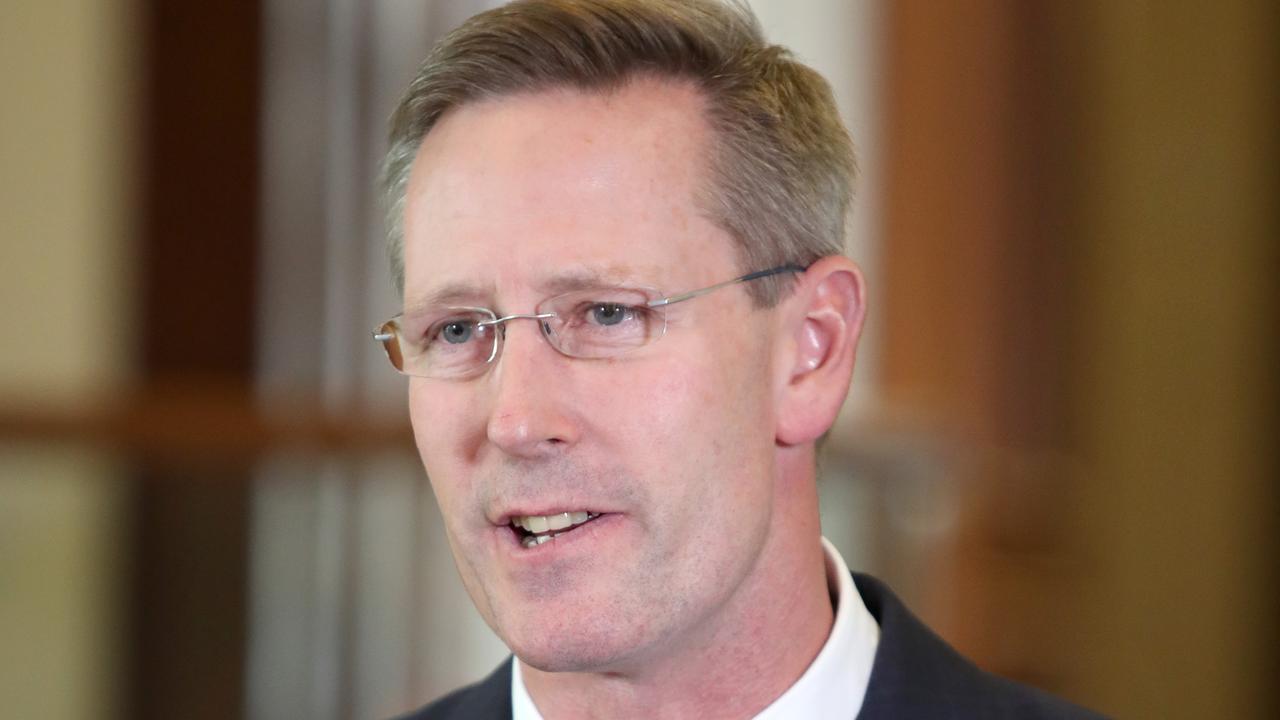Woolworths, Unilever and other big household names back new recycling logos
A NEW marketing push to encourage recycling, backed by Woolies, has had an awkward launch after it encountered a China-sized problem.
A NEW push to get Australians to recycle more, backed by retail heavyweight Woolworths, has run into an awkward problem in just its first week with many councils pleading with households to do the exact opposite and recycle less.
The reason? The bottom has just spectacularly fallen out of the recycling market. The issue has become so fraught one of Australia’s largest recyclers, Visy, has said it will no longer accept kerbside recycling in some council areas from the end of next week.
It’s the latest ramification of China’s so-called “green sword” policy which could see waste pile up around the globe.
This week, the Australian Packaging Covenant Organisation (APCO), a not-for-profit that encourages businesses and governments to embrace sustainability, launched a suite of new symbols designed to catch consumers’ attention.

The new Australian Recycling Label (ARL), backed by retailers and product manufacturers including Officeworks, Unilever and Nestle, aims to sustainability do what new ‘country of origin’ labelling has done for identifying Australian-made products.
Namely, make the whole process simpler and easier for consumers to understand, said Paul Klymenko, chief executive at Planet Ark, the environmental organisation that has thrown its weight behind the new logo.
“‘Which bin do I put it in?’ is a question that confronts Australians every day,” he said.
“The label gives clear instructions on how to correctly dispose of packaging. Its widespread adoption will help reduce consumer confusion about packaging recyclability and contribute to increased recycling rates and lower the amount of contamination to be dealt with by recycling facilities.”

Products including Woolworths private label, Australia Post satchels and T2 tea cubes will be the first to feature three new labels. One will sport the familiar recyclable logo; these packs can be thrown in the household recycling bin. A second logo informs consumers should double check locally that the pack can be recycled. The bin symbol means the packaging cannot be recycled and should be put in the landfill bin.
APCO Chief Executive, Brooke Donnelly, told news.com.au it would now be clear if all, or which part, of the package could be recycled.
“We really believe that this will help consumers to make active and informed choices, not only when it comes to recycling but when considering what products to purchase,” she said.

All laudable aims but tough new regulations crafted 9000kms away in Beijing have thrown a massive spanner in the works.
In the past, around 30 per cent of Australia’s recycling has been sent to China for processing.
Plastic food wrappers thrown away by Australian families were, in some cases, ending up in family-run recycling facilities in China, often sifted through and processed by hand in filthy conditions.
But from January 1, China banned 24 categories of recyclables and solid waste and enforced stricter quality controls effectively closing the doors to much of the world’s rubbish. It’s been dubbed the “green sword”.
In Australia alone, about 619,000 tonnes of materials — worth $523 million — is expected to be impacted by the Chinese ban.

Earlier this month, Tom Szaky of recycling company TerraCycle told news.com.au the move would hit Australia’s rubbish collectors hard as they would have fewer places to send their recycling once they collect it from the kerb.
“There is no way to sugar-coat it ... it absolutely hurts. It will be devastating to traditional recyclers.”
It didn’t take long for first firm to blink with recycler Visy this week telling 11 councils it will cease receiving kerbside recycling on 9 February.
One regional Victorian council pleaded with residents to “minimise” what was heading into recycling bins.
“We’ll certainly be calling on our community to, until we get a solution, try to think very carefully about purchasing things in recyclable containers — plastic bottles, for example,” Macedon Ranges Shire Council mayor Jennifer Anderson told Fairfax.

Some councils are looking to stockpile recyclable materials in the hope a market will be found for it later. There are even fears recyclable waste could end up in landfill.
Ms Donnelly told news.com.au the move by China was complicating recycling efforts.
“While there will undoubtedly be some short term challenges for the local recycling industry in dealing with the ‘green sword’, it also offers amazing opportunities to place a deserved focus on developing domestic markets and innovations here within Australia ... and create an end market for recycled materials”.
“One of the aims of the APCO Packaging Recycling Label Program is to encourage industry to have greater transparency over the supply chain and work towards more sustainable packaging solutions,” she said.

Talking to news.com.au, a spokesman for Suez, one of Australia’s largest waste processors, said they were currently still collecting kerbside recycling. However, recyclable rubbish was fetching a lower price not just due to the China ban but also the decline in the Australian manufacturing industry that had been an end customer.
He said the government needed to do more to boost the home market.
“There’s significant opportunity to stimulate the domestic market for recyclables which will in turn bring economic benefits to the Australian economy. We believe there should be policies to compel manufacturers to use more recycled material in their products and packaging, thereby creating sustainable demand for these materials.”
Glass, for instance, can be recycled indefinitely or can be crushed up for road base. In California, certain plastic packaging must contain at least 25 per cent post consumer recycled content.
The backers of the new recycling label believe that in the long run it will lead consumers to choose more sustainable products and recycle more. But in the short term, they have to get over the hiccup of China’s green sword and the current chaos when it comes to recycling.




